Indigenous Governance Database
Health and Social Services
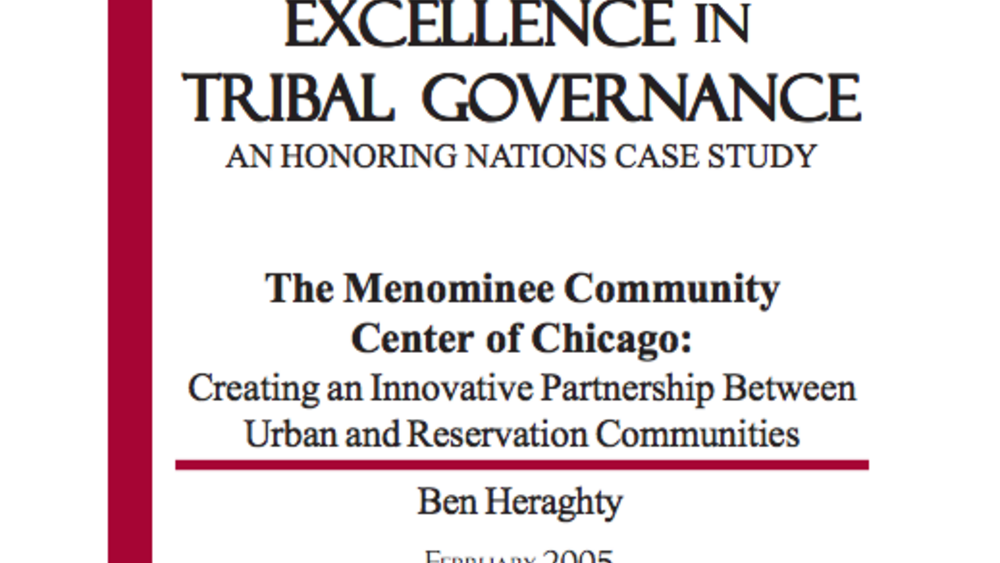
The Menominee Community Center of Chicago: Creating an Innovative Partnership Between Urban and Reservation Communities
Over half of the Menominee Indian Tribe of Wisconsin lives off-reservation. Regrettably, the ties between the Menominee’s reservation and urban populations, like those between the split populations of so many Indian nations, have been tenuous for decades. In 1994, a group…
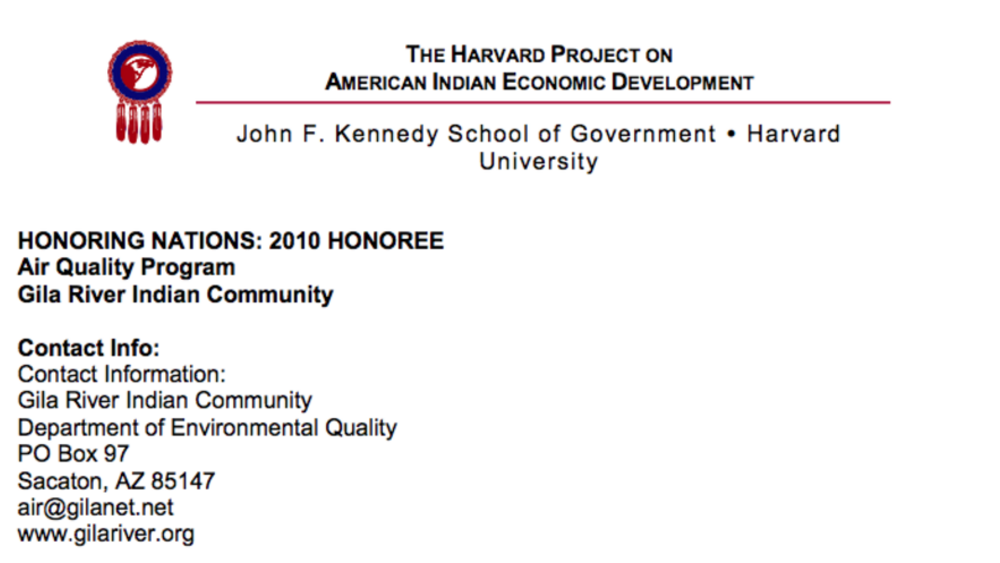
Gila River Indian Community Air Quality Program
In recent years, tribal governments in the United States have passed sophisticated laws and regulations to manage social and economic development in their communities. Although air quality is an important aspect of both economic growth and human health, very few Native nations have successfully…
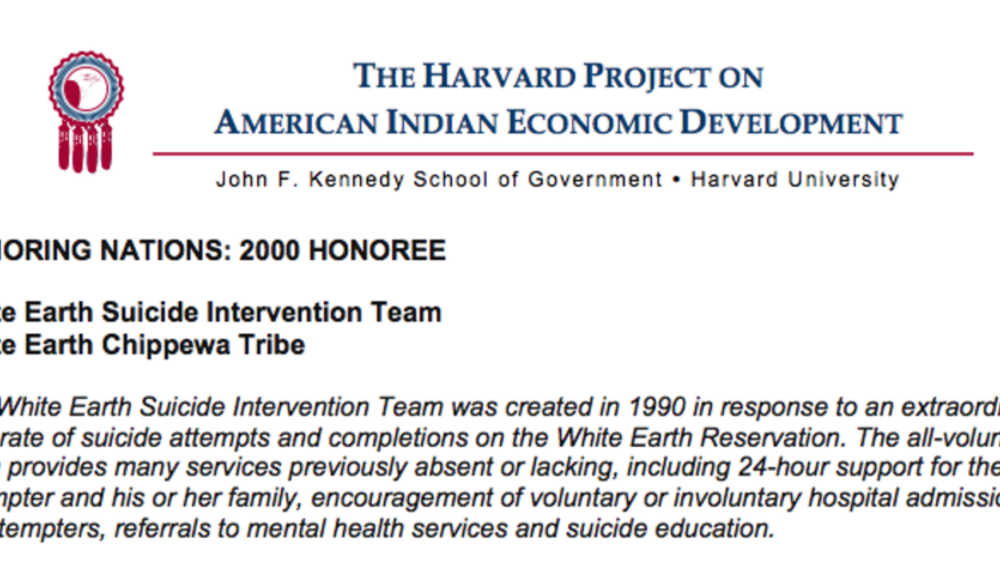
White Earth Suicide Intervention Team
The White Earth Suicide Intervention Team (WESIT) was created in 1990 in response to an extraordinarily high rate of suicide attempts and completions among tribal members living on the White Earth Reservation. With the Tribal Council’s official support, a group of volunteers came together following…
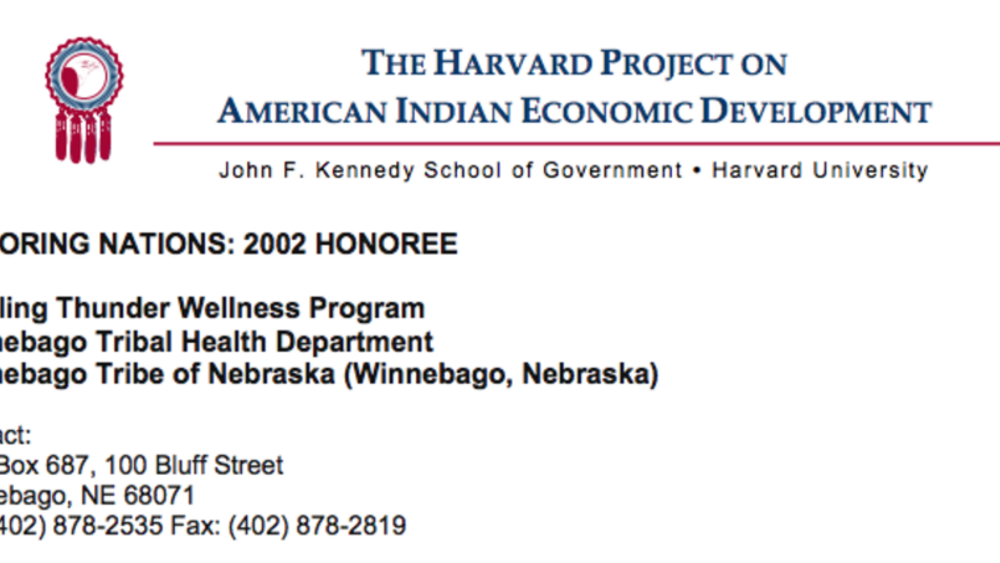
Winnebago's Whirling Thunder Wellness Program
To prevent and control the devastating effects of diabetes and substance abuse, in 1995, the Winnebago Tribe created the Whirling Thunder Wellness Program, which raises community awareness about diabetes and substance abuse, administers primary and secondary prevention services, and encourages…
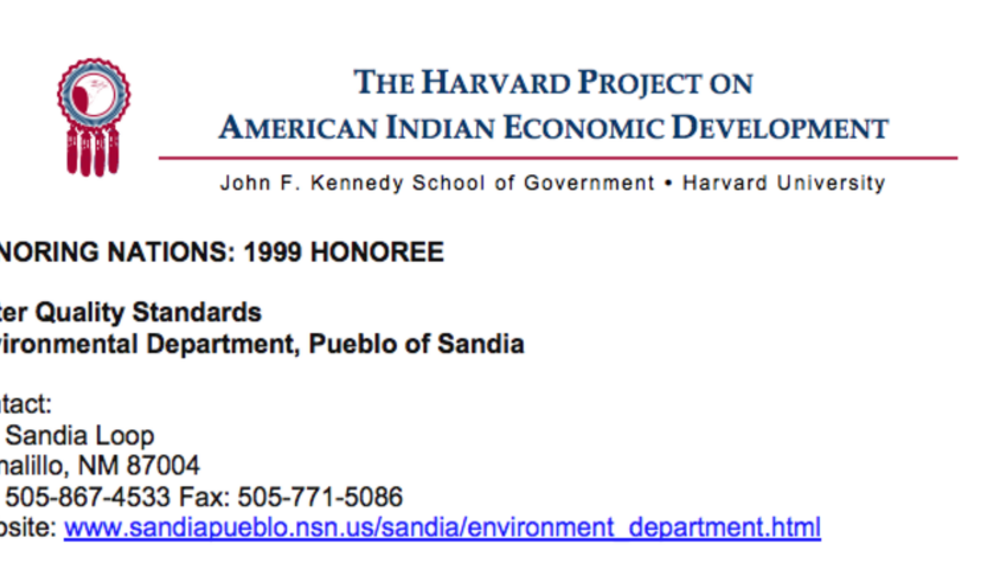
Water Quality Standards (Sandia)
Responding to the severe contamination of the Rio Grande River that threatens human health and ceremonial uses of the water, the Pueblo was awarded "treatment as state" status in 1990. Subsequently, the Pueblo developed and implemented US EPA approved water quality standards that give it control…
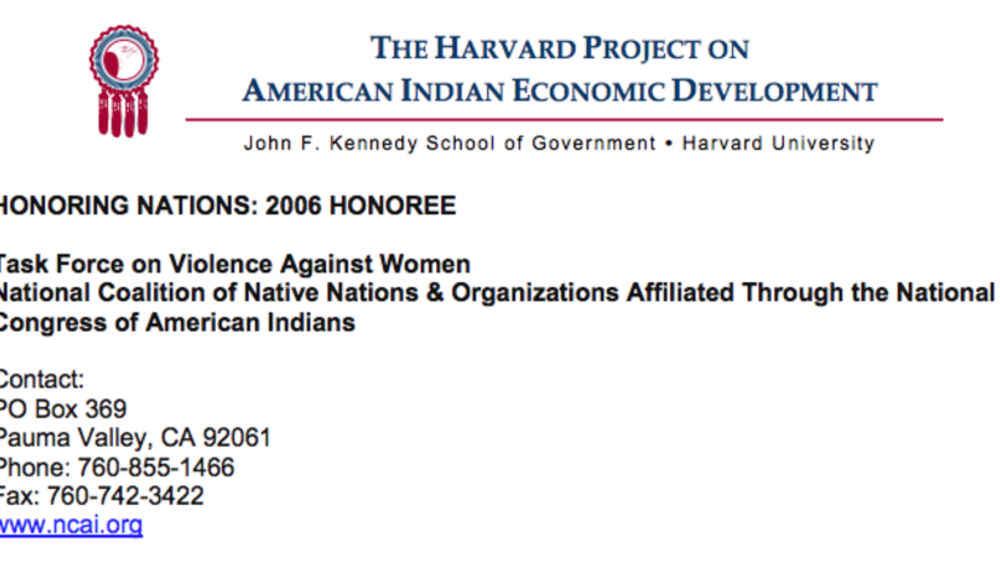
NCAI Task Force on Violence Against Women
Recognizing and acting upon the belief that safety for Native women rests at the heart of sovereignty, leadership from Native nations joined with grassroots coalitions and organizations to create an ongoing national movement educating Congress on the need for enhancing the safety of Native women.…
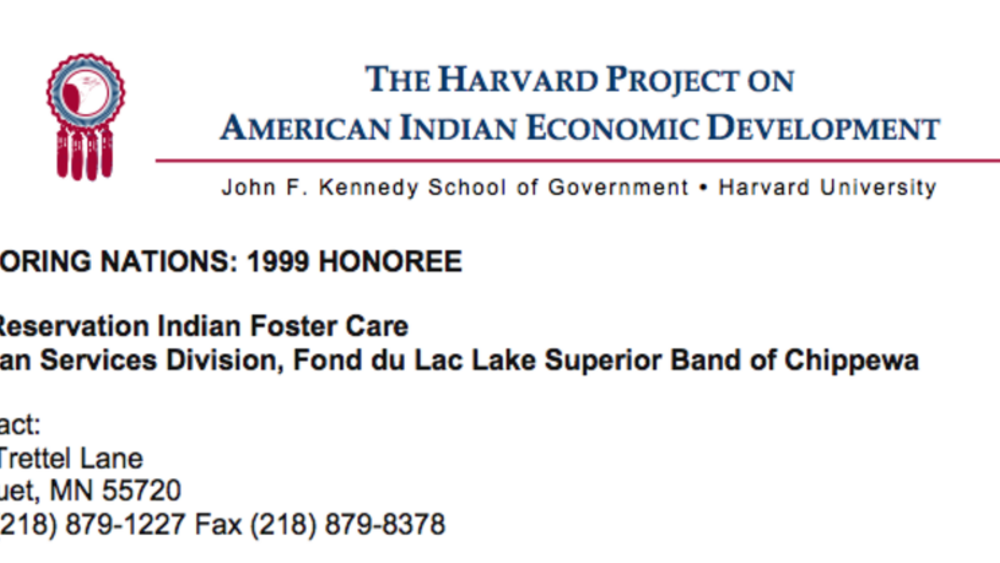
Fond du Lac Off-Reservation Indian Foster Care
By creatively reacting to state laws regarding foster home licensing, the Band established a foster care agency that dramatically reduced the number of Indian children in non-Indian foster care while simultaneously increasing the number of Indian children in Indian foster care. The agency has…
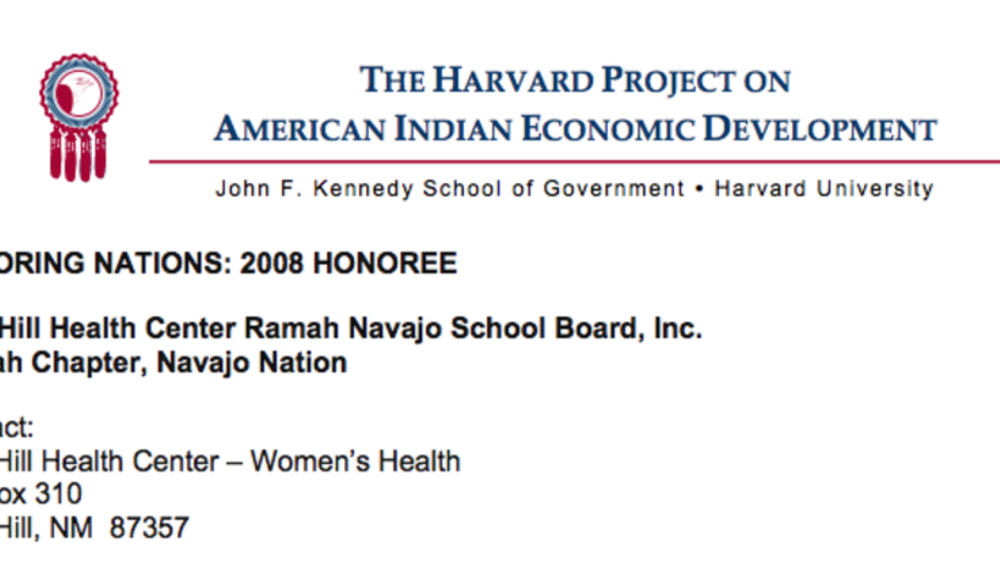
Navajo's Pine Hill Health Center
In the Ramah Chapter of the Navajo Nation–as in many parts of Indian Country–late detection of breast cancer leads to disproportionally high rates of breast cancer mortality. Ramah Navajo’s Pine Hill Health Center devised a creative response: it launched a series of "Mammo Days," educational and…
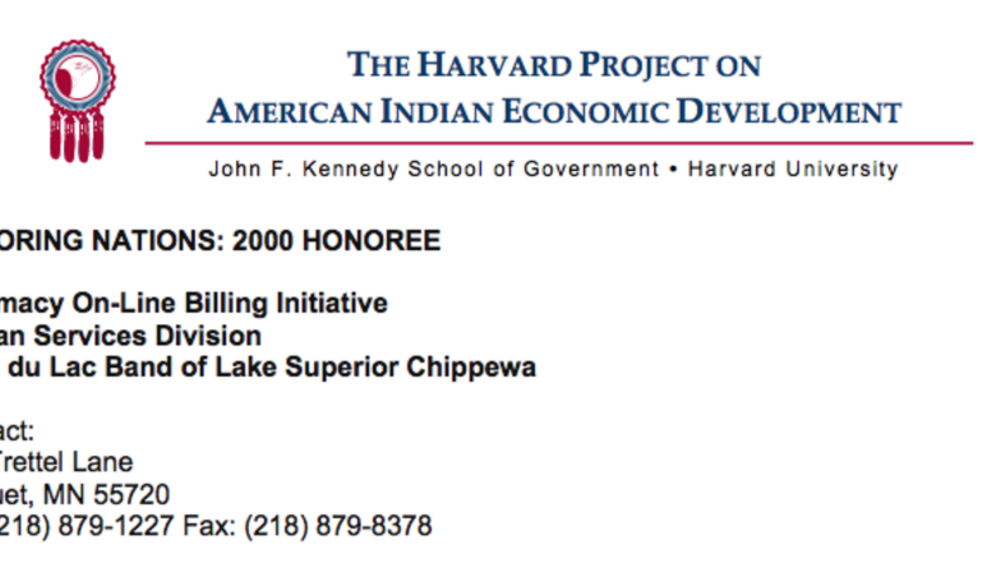
Fond du Lac's Pharmacy On-Line Billing Initiative
In 1995, faced with rising pharmaceutical costs, limited Indian Health Service (IHS) funds, and an inability to bill and collect from third party insurers, the Human Services Division contracted with a private sector firm to design and implement a computerized pharmacy billing system. The first of…
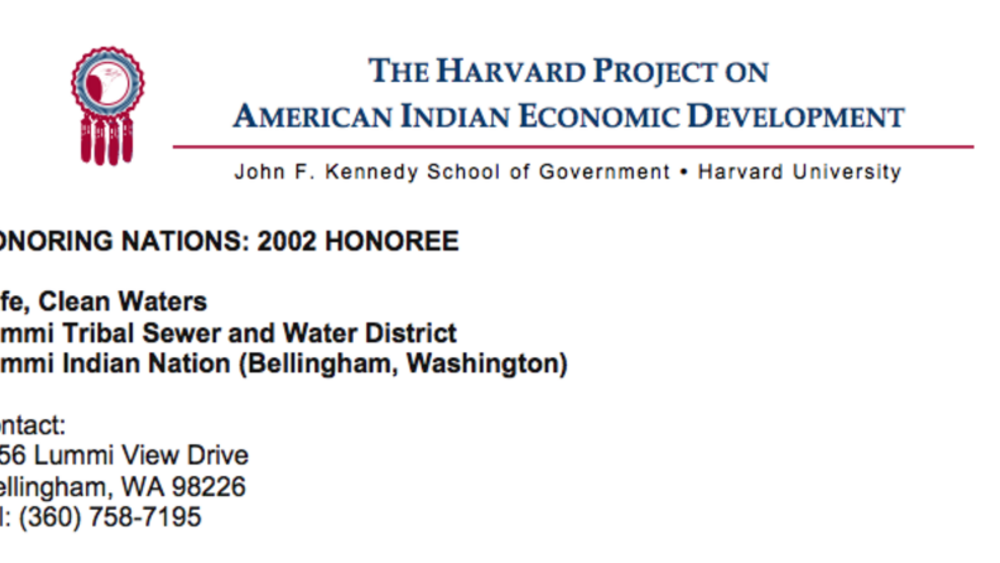
Lummi: Safe, Clean Waters
Governed by a five-member, independently elected board that includes two seats that are open to non-tribal fee land owners, the Lummi Tribal Sewer and Water District provides water, sanitary and sewer infrastructure, and service to 5,000 Indian and non-Indian residents living within the external…
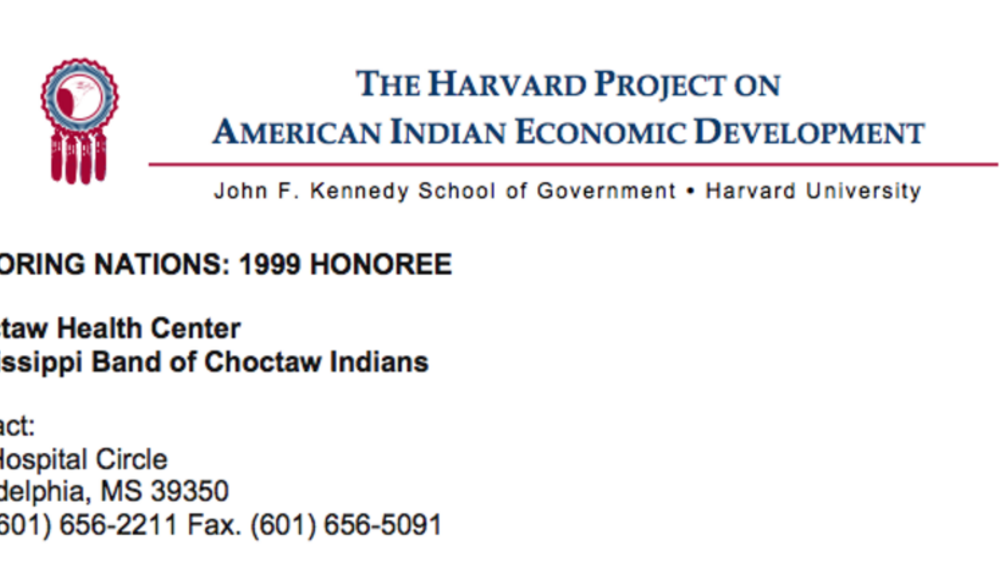
Choctaw Health Center
After transferring all health care decisions from Indian Health Services to tribal control over a ten-year period, the Band significantly improved its health care delivery system. Its state-of-the-art Health Center provides health and dental care, behavioral health care and community health…
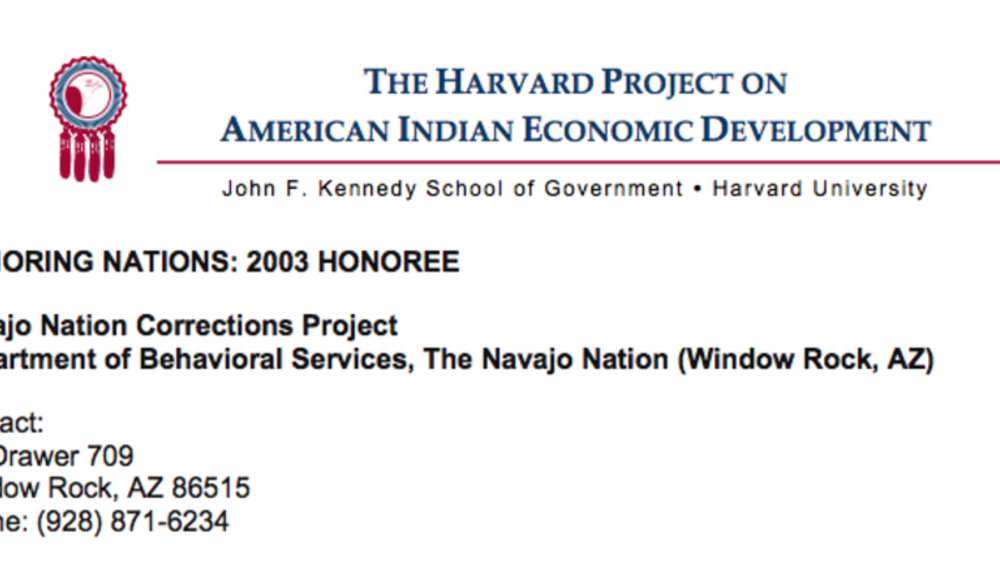
Navajo Nation Corrections Project
Established in 1983, the Corrections Project facilitates, coordinates, and advocates for the use of spiritual ceremonies, cultural activities, and counseling for Navajo and other Indians in correctional facilities. As the liaison between inmates, their families, and Indian and non-Indian government…
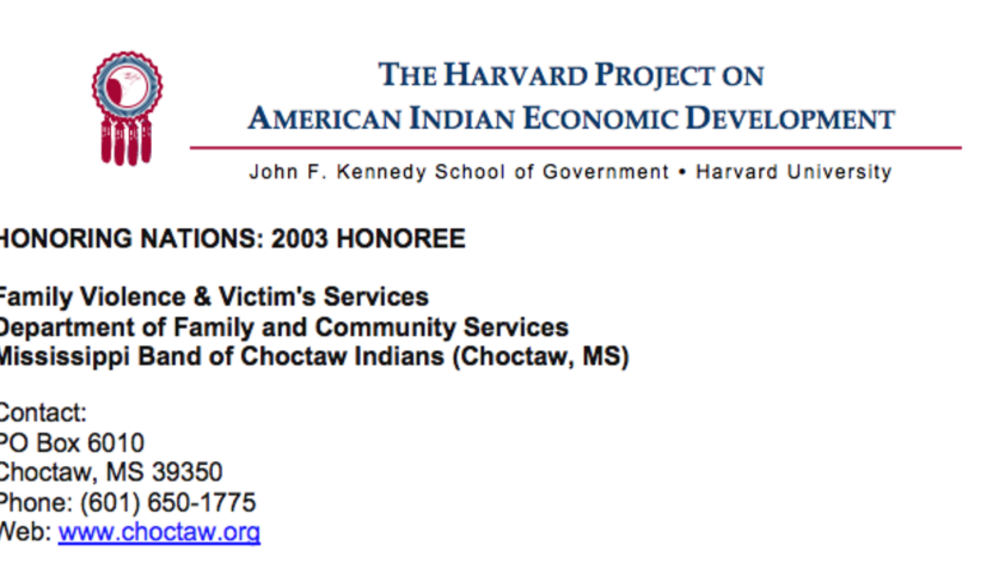
Mississippi Choctaw Family Violence & Victim's Services
Addressing the often-stigmatized issues of domestic violence, sexual assault, stalking, and elder abuse, the Family Violence and Victim’s Services (FVVS) provides comprehensive resources for victims such as access to legal services, counseling, and therapy. In addition, FVVS drafted a strict tribal…
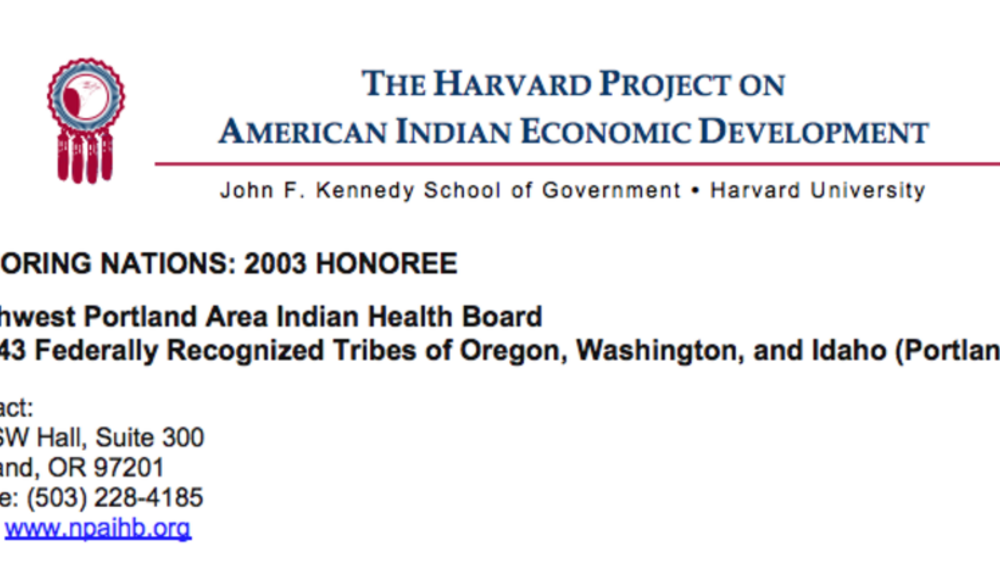
Northwest Portland Area Indian Health Board
Serving tribes in Oregon, Washington, and Idaho, the Northwest Portland Area Indian Health Board (NPAIHB) was created in 1972 to increase tribes’ ability to exercise control over the design and development of tribal health care delivery systems. Governed by tribal government delegates, NPAIHB…
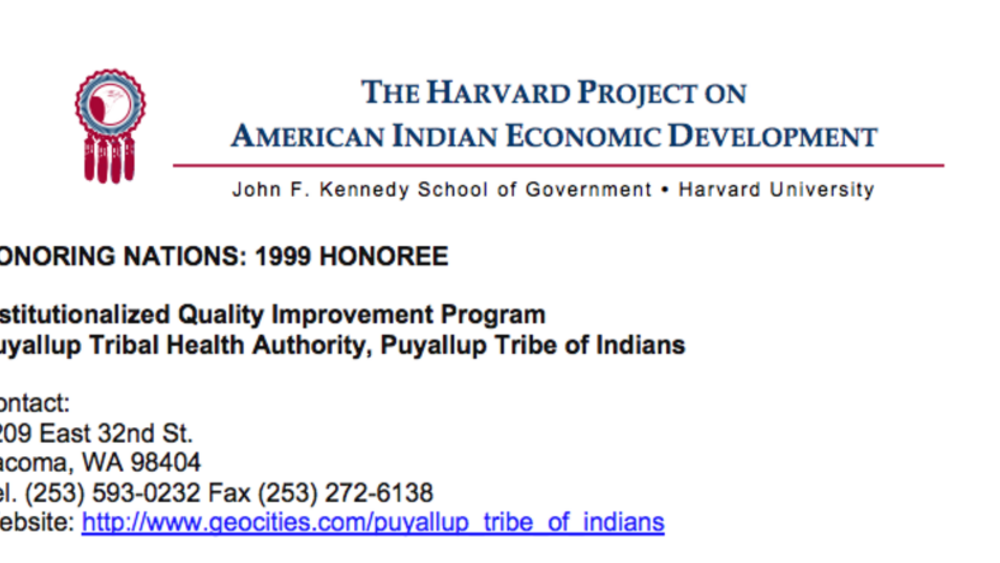
Puyallup's Institutionalized Quality Improvement Program
Following a major tribally-initiated restructuring in the early 1980s that created a quality improvement committee and a flatter organizational structure, the PTHA has increased patient access for urgent care visits, reduced "no show" rates, created clinical objectives, increased dental treatments…
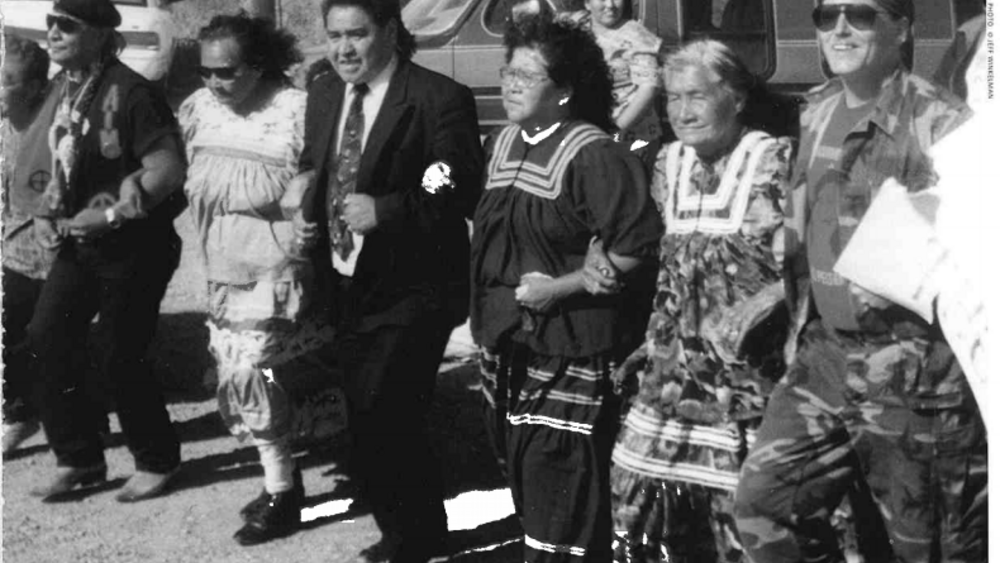
Navajo Treatment Center for Children and Their Family
Responding to high rates of child abuse and neglect, the Navajo Child Special Advocacy Project was launched in 1990 to provide Western and Navajo therapy to victims of sexual abuse between the ages of 3 and 17. With five offices on the Reservation, the project administers Navajo diagnosis,…
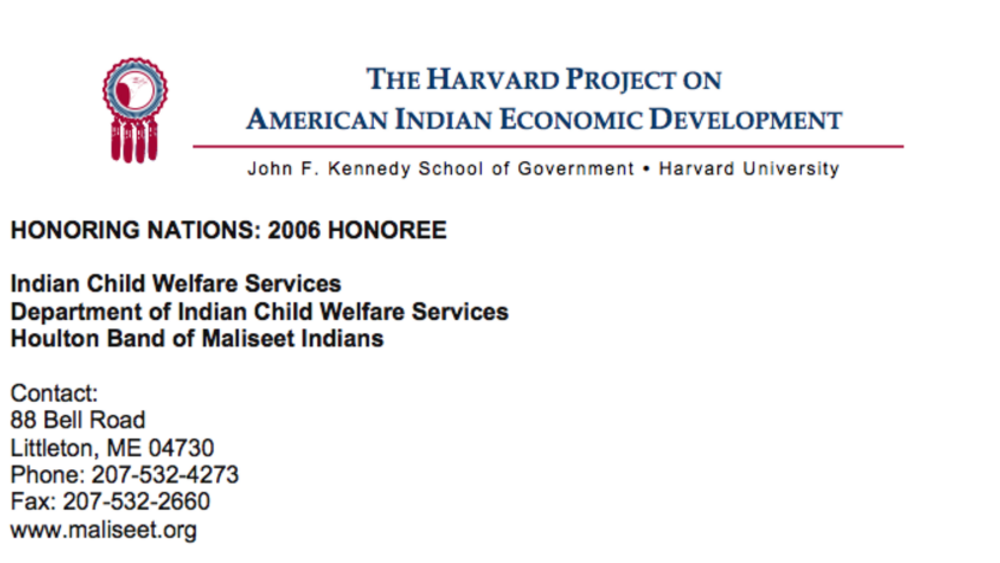
Houlton Band Indian Child Welfare Services
Seeking to establish collaborative working relationships with the state while firmly asserting sovereignty over Maliseet children, a Child Welfare Department was formed by the Houlton Band. The department created a Child Protective Team made up of professionals and volunteers to review and seek…
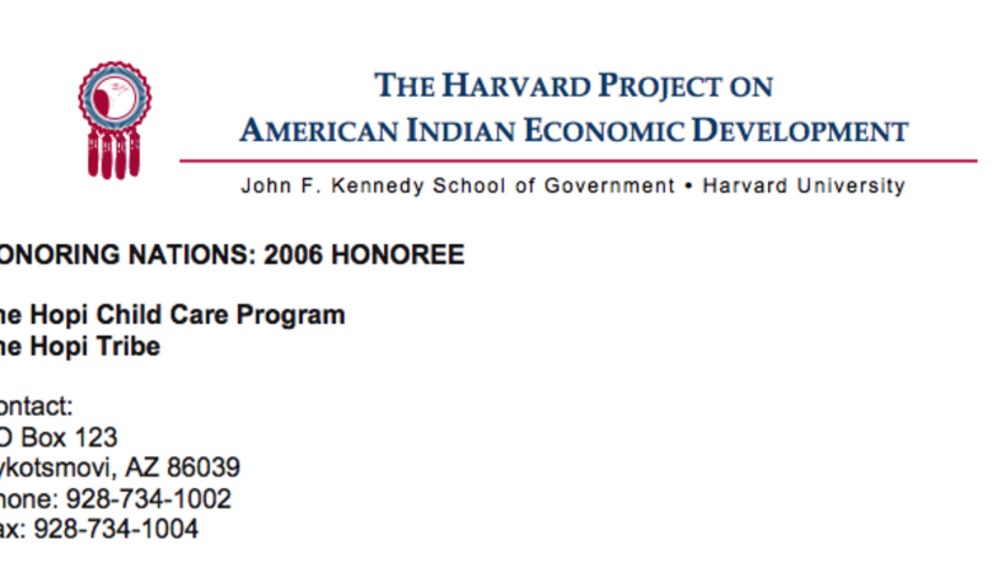
Hopi Child Care Program
The Hopi Child Care Program assists families in accessing quality care for children of parents pursuing education and those with work demands that keep them away from home. Understanding the importance of early childhood development coupled with the need for culturally appropriate care, Hopi…
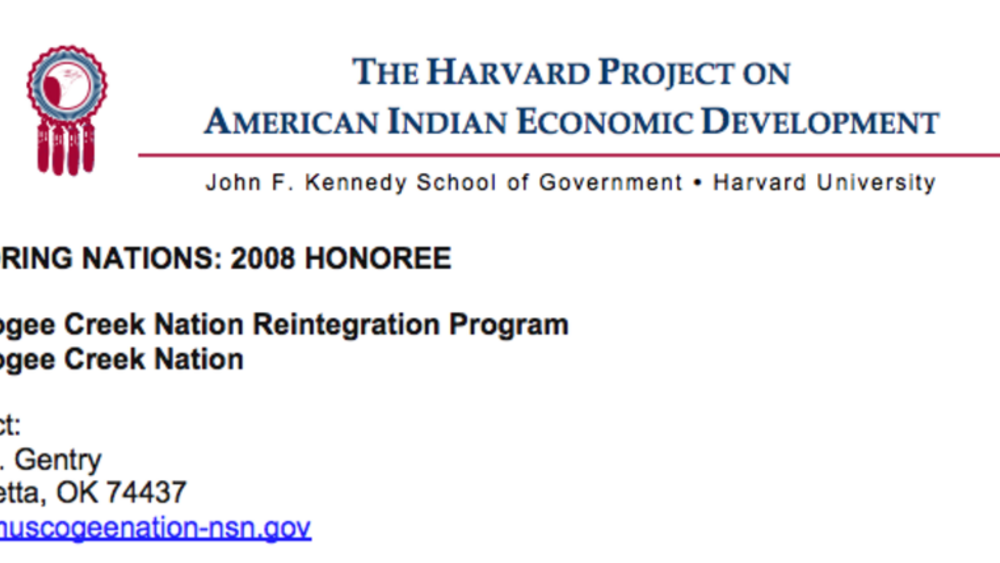
Muscogee Creek Nation Reintegration Program
Although the state of Oklahoma has one of the largest prison systems in the US, it provides released prisoners with little post-incarceration support. Many struggle to find their way on the "outside" and are eventually re-incarcerated. In the early 2000s, the Muscogee Creek Nation set out to tackle…
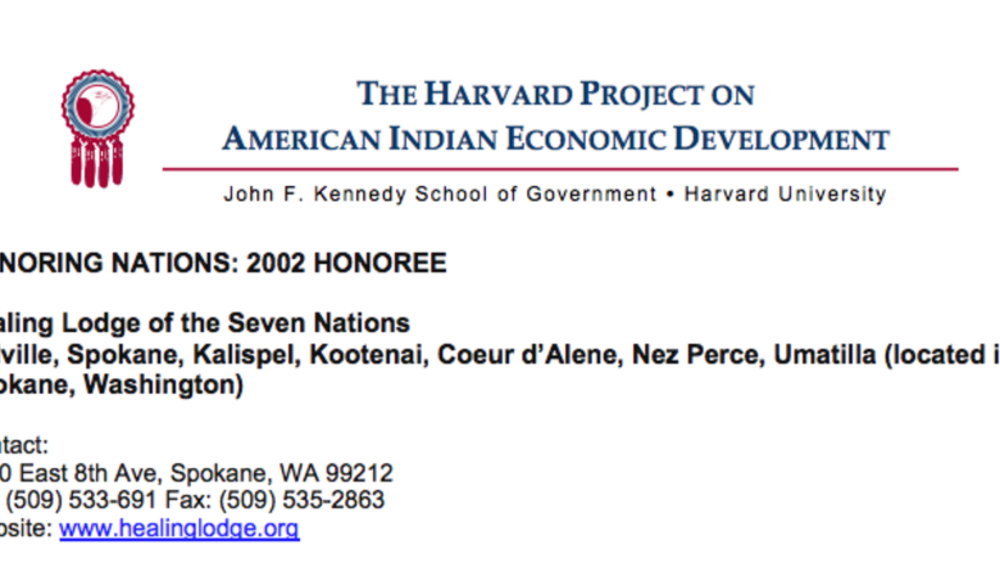
The Healing Lodge of the Seven Nations
Owned by a consortium of seven tribes, the Healing Lodge is a treatment center that helps Native American youth and their families heal from the trauma of alcohol and drug abuse. With a focus on blending culture and spirituality with mental health/chemical dependency treatment, services include in-…
Pagination
- First page
- …
- 2
- 3
- 4
- …
- Last page
